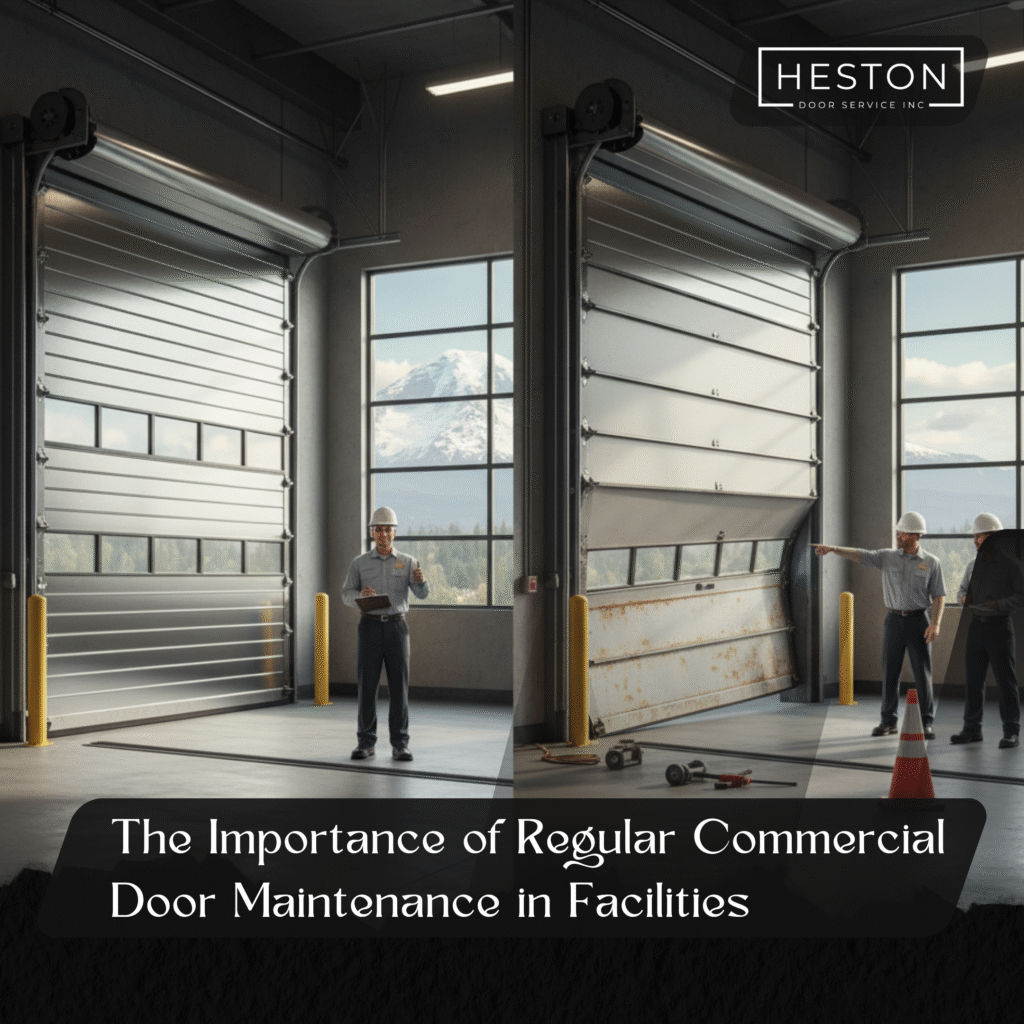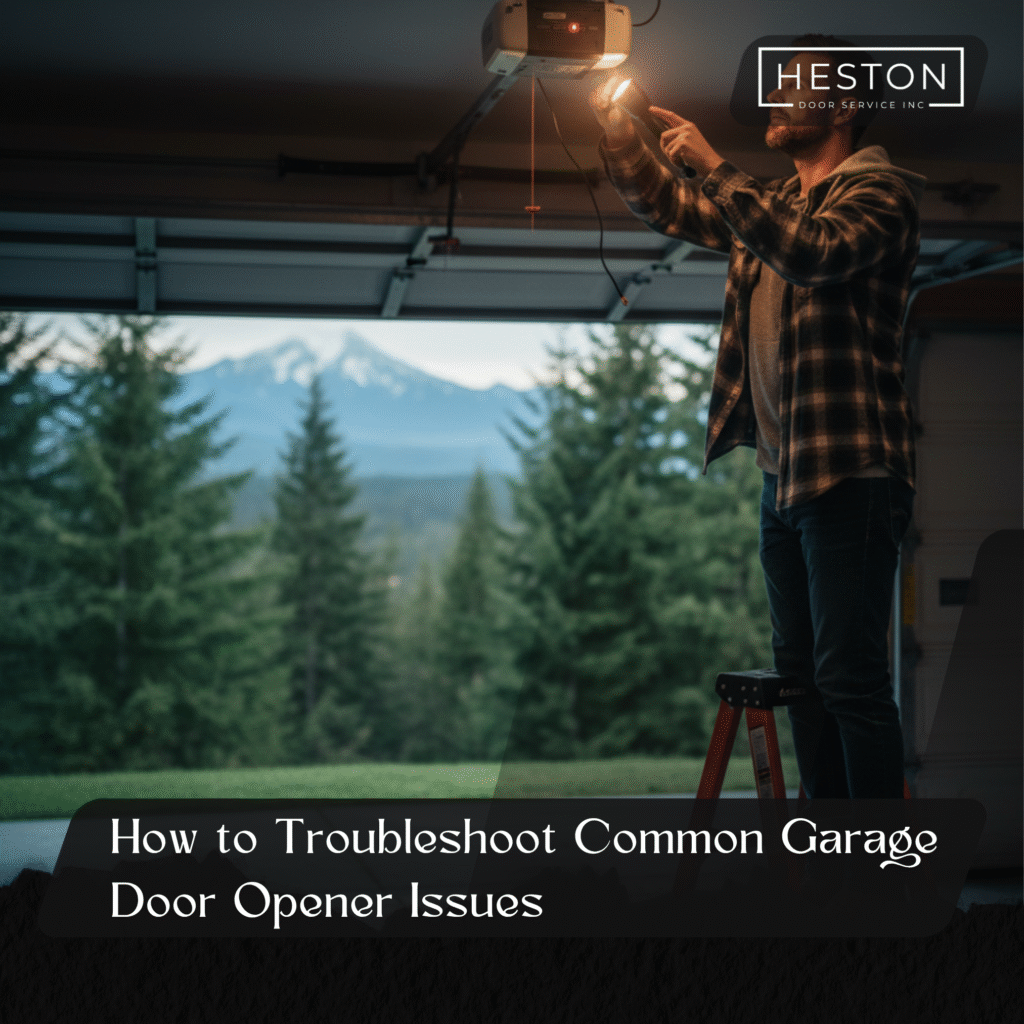Commercial doors play a vital role in the daily operations of businesses. From providing security and accessibility to enhancing the appearance of your building, your doors take on a lot of wear and tear. But many property owners overlook one key factor in protecting this investment: preventative maintenance.
By proactively caring for your commercial doors, you can prevent costly repairs, reduce downtime, and significantly extend their lifespan. In this article, we’ll explore the benefits of preventative maintenance, common maintenance tasks, and why every business should implement a scheduled service plan.
Why Preventive Maintenance Matters
Commercial doors are often used dozens or even hundreds of times a day. Whether it’s a storefront entry, a warehouse roll-up door, or a fire-rated security door, constant use leads to wear and tear. Without regular inspections and adjustments, small issues can turn into major, costly problems.
Preventative maintenance helps to:
- Increase safety for customers and employees
- Minimize unexpected breakdowns
- Reduce long-term repair costs
- Improve energy efficiency
- Maintain compliance with safety and fire codes
- Extend the life of the door and hardware
Top Benefits of Preventive Maintenance for Commercial Doors
1. Catch Issues Before They Become Expensive Repairs
A loose hinge, misaligned track, or worn-out seal might seem minor, but left unchecked, they can lead to complete system failures. Regular maintenance helps identify and resolve these issues early, saving thousands in emergency repair or replacement costs.
2. Improve Energy Efficiency
Doors with damaged seals or poor alignment can leak air, resulting in energy loss. This is particularly costly for temperature-controlled buildings like restaurants, offices, or warehouses. Regular inspections ensure that your doors seal properly, reducing energy bills and improving indoor comfort.
3. Enhance Security and Safety
A poorly maintained door can compromise building security. Damaged locks, faulty sensors, or slow-closing mechanisms can create safety hazards and increase the risk of theft or injury. Scheduled maintenance ensures that all locking systems, sensors, and hardware are functioning as intended.
4. Ensure Code Compliance
Certain types of commercial doors, such as fire-rated or ADA-compliant doors, are subject to strict building and safety codes. Regular maintenance ensures your doors meet these standards, helping you avoid fines, legal issues, or liability claims.
5. Reduce Downtime and Operational Disruption
When a door breaks down, it can bring operations to a halt, whether it’s a dock door for shipments or a main entry door for customers. Preventive maintenance reduces the risk of downtime, keeping your business running smoothly and efficiently.
Key Preventive Maintenance Tasks
Effective maintenance goes beyond just wiping down the door. A trained technician should regularly perform the following:
- Lubricate hinges, tracks, rollers, and springs
- Check for proper alignment and adjust if necessary
- Inspect weather stripping and seals for wear
- Test automatic sensors and safety features
- Tighten loose bolts and hardware
- Clean and inspect glass, frames, and thresholds
- Check motor function for automated doors
- Inspect for rust, corrosion, or physical damage
Many commercial door service providers offer maintenance contracts, which include routine checkups and documentation for your records.
How Often Should Commercial Doors Be Serviced?
The frequency of maintenance depends on usage. Here’s a general guideline:
- High-traffic entry doors (e.g., retail stores): Every 3 to 6 months
- Warehouse or roll-up doors: Every 6 months
- Low-traffic or interior doors: At least once a year
Regular servicing ensures minor issues don’t escalate, extending the life of your doors and systems.
Types of Commercial Doors That Need Maintenance
Almost all commercial doors benefit from routine maintenance, including:
- Overhead roll-up doors
- Glass storefront doors
- Automatic sliding or swinging doors
- Fire-rated doors
- Loading dock doors
- Security gates and grilles
- ADA-compliant doors and access systems
Each type has unique components that require attention. A professional can tailor a maintenance plan based on your door type, location, and usage level.
Final Thoughts
Your commercial doors are a valuable investment, and like any mechanical system, they require routine care to operate at peak performance. Preventative maintenance not only extends the lifespan of your doors but also improves safety, security, efficiency, and compliance.
Don’t wait until something breaks. Partner with a trusted commercial door service provider and schedule regular inspections to keep your doors and your business running without interruption. Contact us today!





